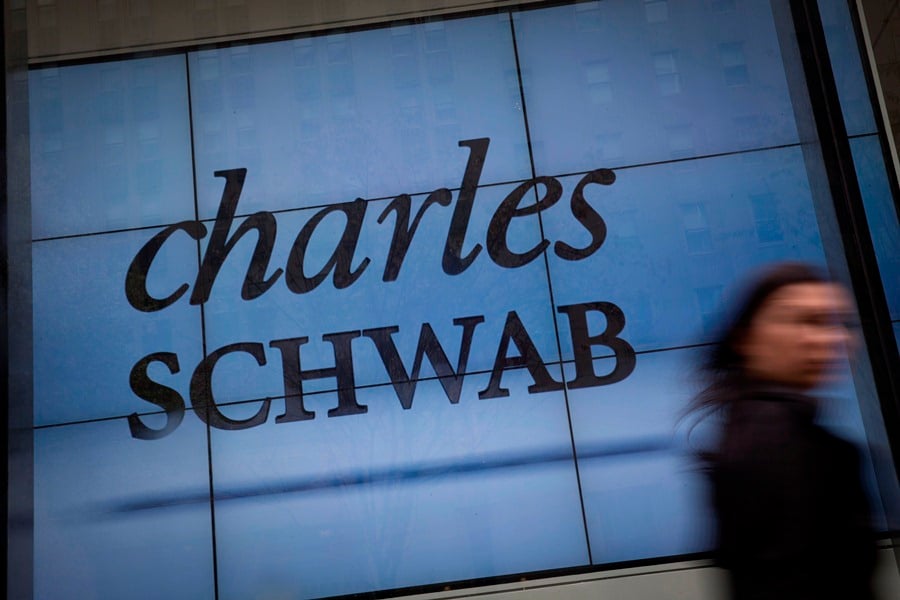

Charles Schwab Corp. said it will take a $200 million charge in the second quarter related to a Securities and Exchange Commission probe of its robo-adviser platform.
The compliance inquiry relates to past disclosures around the firm’s Schwab Intelligent Portfolios product, according to a regulatory filing Friday. The company said it’s been cooperating with the SEC and its ultimate liability may differ from the amount it’s earmarking now.
The SEC filed its first enforcement actions against robo-advisers in December 2018, accusing Wealthfront Advisers and another firm of making false statements about investment products and publishing misleading advertisements.
Wealthfront, which had more than $11 billion in client assets under management at the time, agreed to pay a $250,000 penalty without admitting or denying the findings.
Robo-advisers, which typically select low-cost exchange-traded funds for investors based on their risk tolerance and automatically rebalance the portfolios, have become increasingly popular across Wall Street, with Goldman Sachs Group Inc. rolling out such a product earlier this year. On its website, Schwab predicts assets managed by robo-advisers will grow to $460 billion next year, from $47.3 billion in 2015.
While the SEC has signaled it’s more focused on cases against robo-advisers, it’s brought relatively few cases. In one last month, the agency said it settled claims against a Canadian robo-adviser, Emperor Investments Inc., after the firm agreed to pay $25,000 over allegations it posted misleading performance data on its website.
The SEC didn’t immediately respond to an email about the Schwab case sent to its press office outside of normal business hours.
Shares of the company, which have gained 36% this year, fell 1.7% to $72.34 at 9:44 a.m. in New York.
Schwab said it had $64 billion in client assets in its robo-adviser product at the end of March. The firm has more than $7 trillion in client assets across 32 million active brokerage accounts.
Under U.S. securities rules, firms that offer advice to clients digitally through algorithms are required to make the same kind of disclosures as those whose representatives make suggestions to clients over the phone or in person. The agency put out guidance in February 2017 that detailed how its rules apply to the fast-growing industry, reminding firms to be careful not to mislead clients and ensure their disclosures are accurate and internal compliance programs are effective.
SEC Chair Gary Gensler, who took over the regulator in April, has signaled that he wants the agency to hold robo-advisers to the same standards as other investment firms.
“Technology is always changing the face of finance,” Gensler said last month during City & Financial Global’s London City Week event. “But our core principles stay the same: protecting investors, facilitating capital formation for individuals and companies and maintaining fair, orderly and efficient markets between them.”

The looming threat of federal funding cuts to state and local governments has lawmakers weighing a levy that was phased out in 1981.

The fintech firms' new tools and integrations address pain points in overseeing investment lineups, account monitoring, and more.

Canadian stocks are on a roll in 2025 as the country prepares to name a new Prime Minister.

Carson is expanding one of its relationships in Florida while Lido Advisors adds an $870 million practice in Silicon Valley.

The approval of the pay proposal, which handsomely compensates its CEO and president, bolsters claims that big payouts are a must in the war to retain leadership.
RIAs face rising regulatory pressure in 2025. Forward-looking firms are responding with embedded technology, not more paperwork.
As inheritances are set to reshape client portfolios and next-gen heirs demand digital-first experiences, firms are retooling their wealth tech stacks and succession models in real time.
